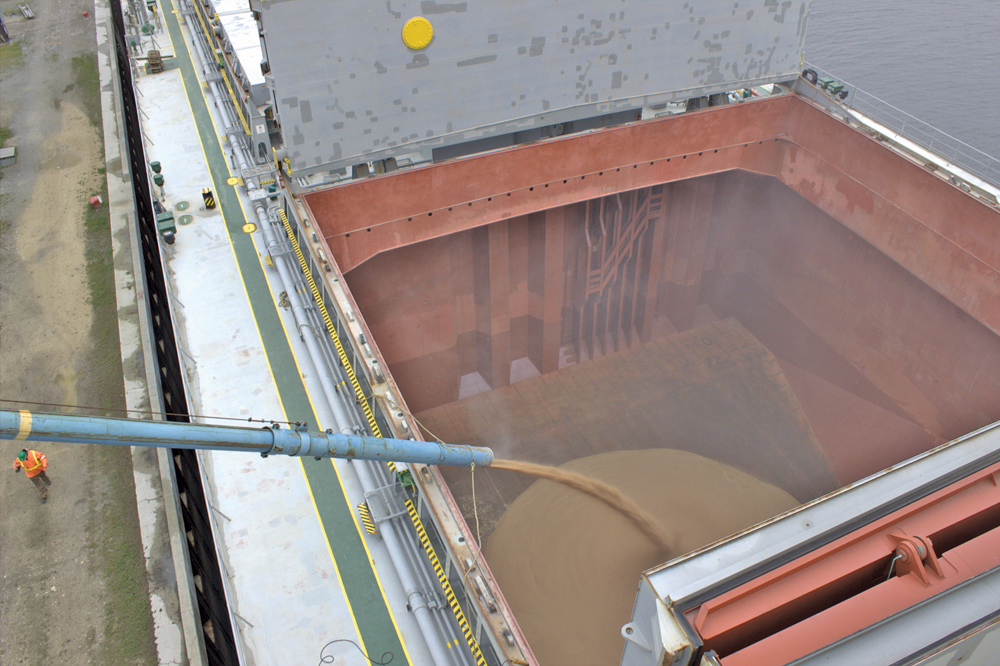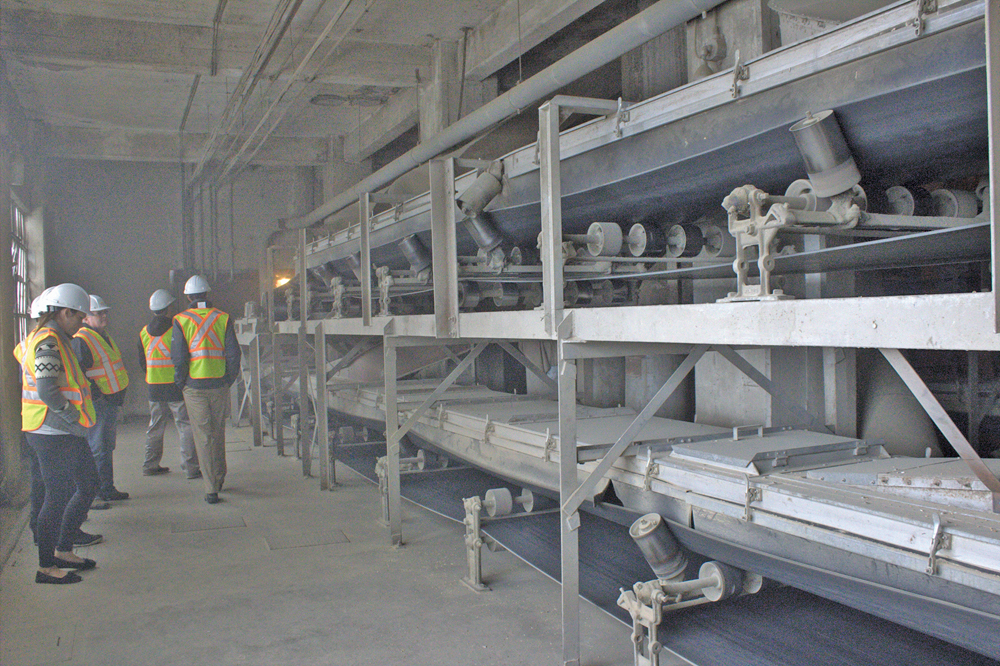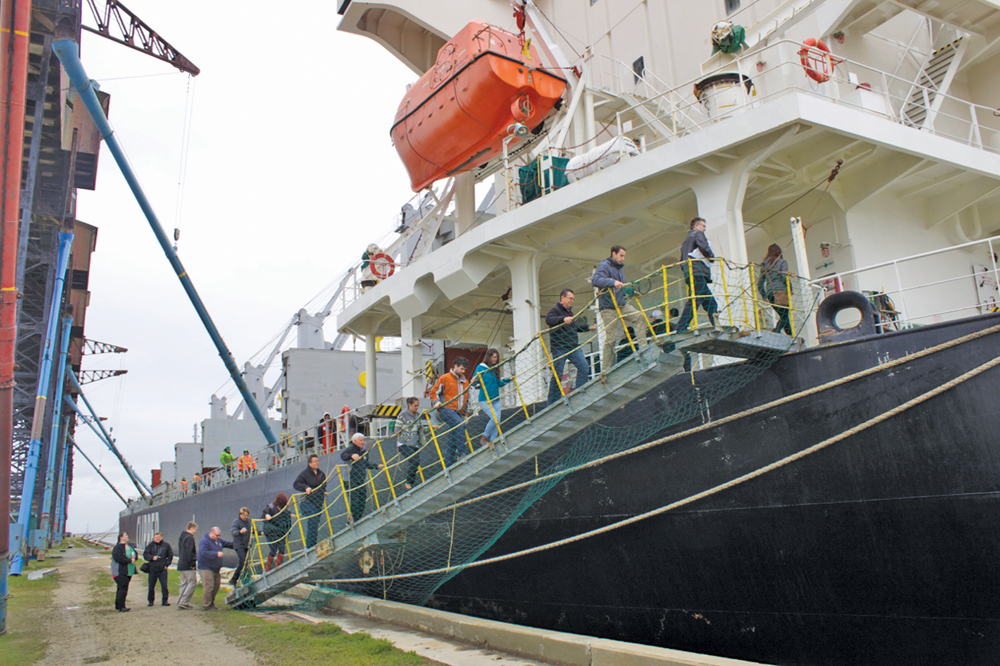Shipping from the Port of Churchill started a month later than usual this season — a trade-off between reducing railway maintenance costs in warm weather and getting as much grain as possible through the northern route before winter freeze-up.
Loading started Sept. 9 on the Clipper Bettina with the vessel bound for Kenya and other African ports carrying 36,000 tonnes of hard red spring wheat.
Churchill typically sees its first shipment in early August, but port officials said they started later this year to lower the cost of maintaining the track.
Cooler temperatures lower the cost of maintaining the rail line through northern Manitoba, said Merv Tweed, president of OmniTrax Canada, the railway company that operates the port.
When running trains over the tundra, he said, “when it firms up, it stays firm.”
Jeff McEachern, executive director of the Churchill Gateway Development Corporation, said another factor was excessive supplies and low demand within the global grain market.
“I’ve talked to other port terminals and people in the industry and they’re saying the same thing,” he said, adding that “the grain isn’t moving as quickly as we would like.”
The Hudson Strait, which links Hudson Bay with the Atlantic Ocean, also poses a mix of challenges. It’s beneficial to guide vessels through safely, but also freezes often.
If the weather co-operates, the port is scheduled to operate until Nov. 6. Tweed said he is confident the combined shipments from four companies will exceed 400,000 tonnes, but it may fall short of the budgeted 500,000 tonnes.
Winnipeg grain firm Richardson International is behind the first shipment of the year. Company wheat merchant Jerry Trenouth said Richardson likes the port’s geographical proximity, although using it is not without challenges.
“The Port of Churchill is geographically closer to the Prairie farmer. So there’s less logistics to get it to an export terminal,” he said.
But, “the season is a bit shorter,” he said. “Our harvest starts coming off in September, so we can really only ship from the Prairie farmer in a very short window.”
In many cases, working with Churchill is cheaper, he said.
Pulse crops
The port will be shipping 75,000 tonnes of lentils for the first time this season as it continues to look for ways of diversifying its handle. The port opted to ship pulses as opposed to other commodities, because they are similar in nature to the grains they already handle, Tweed said.
“I think to diversify into much else — all we’re going to do is sacrifice one for the other,” he said.
The port’s longer-term outlook remains uncertain as a $25-million subsidy from the federal government runs out in 2017.
In the past, the Port of Churchill relied on the Canadian Wheat Board as its primary supplier of grain, but in 2012 the government put an end to the monopoly.
Tweed said he is appealing to different levels of government to continue supporting the port but the fact that it became privately owned by OmniTrax in 1997 is a drawback.
He said the company is willing to entertain partnerships, perhaps with First Nation governments, if it means it can access continued operational support.
“It’s like we have a sore arm, and they just want to fix the sore arm instead of the body that goes with it. We just feel that we’re important enough to the North,” he said.
New partners possible
The port hires mechanics, carpenters, millwrights, and engineers, and if the port works with band councillors, the port would be able to hire more people from those communities, he said.
While the northern climate shortens the shipping season, it’s warm weather that causes the greatest cost in maintaining the northern route, he noted.
A large stretch of the track runs over tundra. When the ground heats up it becomes soft.
“It’s a huge expense and it’s a continuous expense, even now.”
He says the port’s budget runs up to $5 million. “And I always say we’re one grain accident away from $10 million. It can add up very quickly.”
Read Also

Cabbage seed pod weevil the surprise top canola pest in Manitoba for 2025
Get set to scout this summer. After a few years of low profile in Manitoba, cabbage seed pod weevil populations, among a few other pests, boomed here in 2025.
Transportation to and from the Port of Churchill for this article was provided by Hudson Bay Port Company.




















